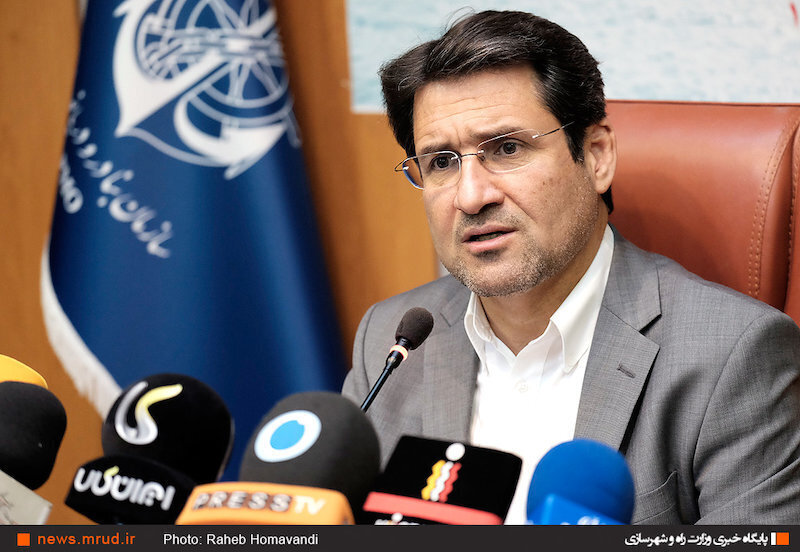
Economic activity in Iranian ports ongoing constantly: PMO head

Activities in Iranian ports do not stop even for a moment,” IRIB quoted Mohammad Rastad as saying.
“We have a lot of capabilities in the country's maritime sector and the world is also closely watching the Islamic Republic of Iran’s capacities in this sector while monitoring the activities that are being carried out,” the official said.
Rastad noted that Iran's maritime transport fleet is one of the largest fleets in the world and the country's ports have a capacity of about 250 million tons per year.
“The International Maritime Organization (IMO) considers the Islamic Republic of Iran as an influential country in the maritime sector,” he stressed.
Pointing out that there is a positive atmosphere in the maritime sector to introduce the country's capacities more than before, the deputy transport minister said: “The country's ports are operating around the clock; for example, basic goods are being unloaded and loaded at Imam Khomeini Port every day, and in Shahid Rajaei Port, the activities do not stop even for a moment.”
Rastad further said that the country's ports have sisterhood agreements with more than 40 ports in the world, adding: “We are also negotiating with several other ports,”
In late June, Rastad had called for close coordination and collaboration among the country’s maritime organizations for defeating U.S. sanctions on this sector.
According to the official, some 52.5 million tons of non-oil commodities were exported from Iranian ports in the previous Iranian calendar year 1398 (ended on March 19).
In late March, Rastad announced that PMO is going to pay 36 trillion rials (about $857 million) for supplying marine fleet during the current Iranian calendar year (began on March 20).


Trump weighs using $2 billion in CHIPS Act funding for critical minerals

Codelco cuts 2025 copper forecast after El Teniente mine collapse

Electra converts debt, launches $30M raise to jumpstart stalled cobalt refinery

Barrick’s Reko Diq in line for $410M ADB backing

Abcourt readies Sleeping Giant mill to pour first gold since 2014

Nevada army depot to serve as base for first US strategic minerals stockpile

SQM boosts lithium supply plans as prices flick higher

Viridis unveils 200Mt initial reserve for Brazil rare earth project

Tailings could meet much of US critical mineral demand – study

Kyrgyzstan kicks off underground gold mining at Kumtor

Kyrgyzstan kicks off underground gold mining at Kumtor

KoBold Metals granted lithium exploration rights in Congo

Freeport Indonesia to wrap up Gresik plant repairs by early September

Energy Fuels soars on Vulcan Elements partnership

Northern Dynasty sticks to proposal in battle to lift Pebble mine veto

Giustra-backed mining firm teams up with informal miners in Colombia

Critical Metals signs agreement to supply rare earth to US government-funded facility

China extends rare earth controls to imported material

Galan Lithium proceeds with $13M financing for Argentina project

Kyrgyzstan kicks off underground gold mining at Kumtor

Freeport Indonesia to wrap up Gresik plant repairs by early September

Energy Fuels soars on Vulcan Elements partnership

Northern Dynasty sticks to proposal in battle to lift Pebble mine veto

Giustra-backed mining firm teams up with informal miners in Colombia

Critical Metals signs agreement to supply rare earth to US government-funded facility

China extends rare earth controls to imported material

Galan Lithium proceeds with $13M financing for Argentina project

Silver price touches $39 as market weighs rate cut outlook

















